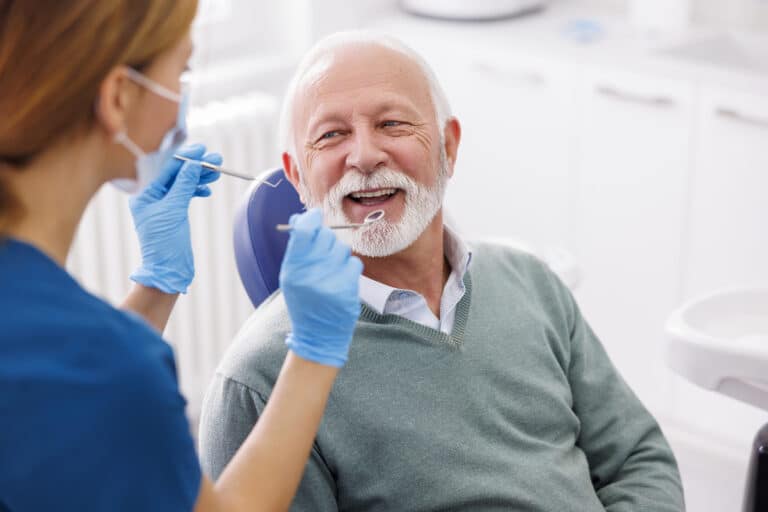The number of things that change within the body as it ages is hard to keep track of. However, keeping track is how loved ones, companion care at home, and seniors themselves can ensure the best possible quality of life as the years pass. This means understanding how medication affects certain areas of seniors’ lives, including their oral health.
Medication is often essential for many seniors to manage chronic diseases. However, its possible effect on dental health can make things more challenging.
Dry Mouth (Xerostomia)
One of the most frequent side effects of medication among seniors is dry mouth. A number of drugs, including those for allergies, depression, and high blood pressure, can reduce saliva production. Saliva is essential for removing food particles from teeth, neutralizing acids, and preventing tooth decay. Seniors who don’t produce enough saliva are more likely to get cavities, gum disease, and oral infections.
Companion care at home caregivers can encourage seniors who experience dry mouth to drink lots of water throughout the day to stay hydrated. Seniors can also chew gum or suck on sugar-free lozenges to encourage the production of saliva. Additionally, they should limit their alcohol and caffeine intake, as these can worsen the symptoms of dry mouth.
Gum Inflammation and Overgrowth
Anticonvulsants, immunosuppressants, and calcium channel blockers are a few examples of medications that might result in gingivitis, inflamed gums, or gingival hyperplasia. These ailments may cause pain, make it harder to chew food and raise seniors’ chances of developing gum disease.
Seniors should maintain good oral hygiene, including flossing once a day and brushing twice a day using a toothbrush with soft bristles. Frequent dental examinations are also necessary to track gum health and quickly treat any problems.
Tooth Decay
If medications, especially those that include sugar, contact teeth for an extended period of time, they may exacerbate tooth decay. Additionally, medications that produce dry mouth can alter the oral environment, increasing the risk of tooth decay.
Companion care at home workers can remind seniors to use syrups or chewable pills with high sugar content to rinse their mouths with water afterward. Also, tooth enamel can be strengthened and decay prevented by using fluoride toothpaste and asking the dental team about fluoride treatments or varnishes during dental checkups.
Oral Thrush
Oral thrush, which is a fungal infection that causes white patches on the tongue, inner cheeks, or roof of the mouth, may be more common in seniors using antibiotics or corticosteroids. Both discomfort and altered taste perception can result from this condition.
The best way to avoid oral thrush is to practice good oral hygiene. Seniors should regularly brush their teeth and, if necessary, properly clean their dentures. Furthermore, eating meals high in probiotics or taking probiotic supplements may help, as they tend to provide balance.
While medications are necessary for treating the medical issues that affect seniors, they can also affect oral health. Companion care at home services can help seniors understand the side effects that might result from certain medications and how they impact their oral health and quality of life in general. From there, home care can teach seniors valuable preventative measures to possibly reduce the effects.
If you or an aging loved one needs Companion Care at Home in Sacramento, CA, contact A Better Living Home Care today (916) 514-7006
Sources:
- https://www.deltadental.com/us/en/protect-my-smile/life-stages/older-adults/some-medications-can-affect-oral-health.html
- https://www.aarp.org/health/conditions-treatments/info-2022/medications-and-teeth.html
- https://www.eldertreecare.com/blog/dental-care-for-seniors
- Helping Seniors Reduce Health Anxiety - April 18, 2025
- Why Should Seniors Consider Adding Soy to Their Diets? - April 7, 2025
- Four Ways to Celebrate Spring With Your Homebound Elderly Loved One - April 2, 2025


